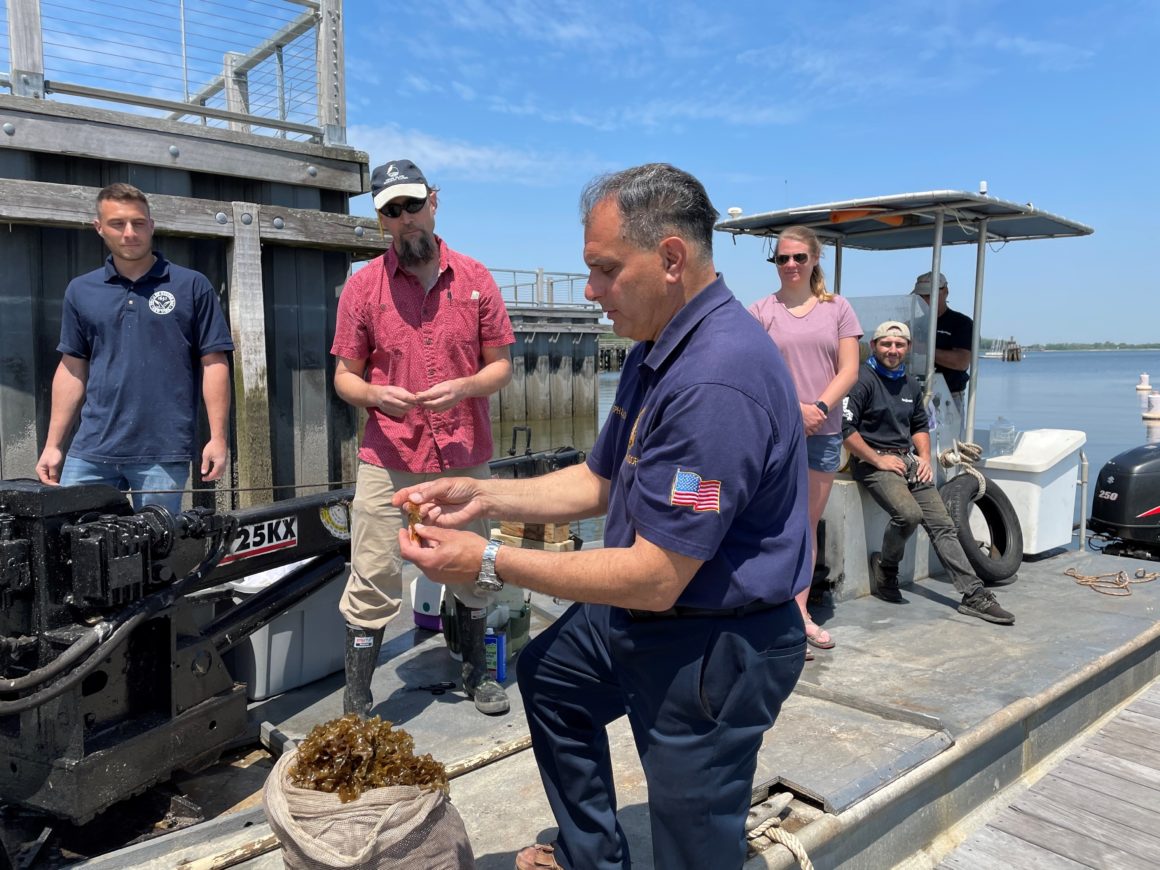Oyster Bay Town Supervisor Joseph Saladino and Councilwoman Vicki Walsh today announced a new initiative, ‘Farming to Fairway,’ in which thousands of feet of Sugar Kelp grown in local waterways will be harvested, dried, composted and used to treat landscaping at the Hon. Joseph Colby Town of Oyster Bay Golf Course in Woodbury and throughout Town parks. The Town has expanded its kelp operations in partnership with Adelphi, SUNY Stony Brook, and Cornell Cooperative Extension, now growing over 3,000 feet of kelp – the equivalent of 10 football fields – in Harry Tappan Marina, Theodore Roosevelt Memorial Park Marina, TOBAY Beach Marina, Oyster Bay Harbor and Cold Spring Harbor Conservation Management Areas
Supervisor Saladino stated, “In continuing our commitment to the environment, this new Farm to Fairway initiative provides dual benefits as Kelp significantly reduces nitrogen in our waterways helping to improve water quality, and decreases our dependency on chemical fertilizers on land. As strange as it may seem, kelp is proven to be incredibly successful as a natural fertilizer as it is 100% organic, dense in nutrients, and does not net an increase in nitrogen through storm water runoff pollution. When applied to fairways specifically, it helps to increase root growth, improve appearance, promote seed development and enhances natural resistance of the fairways to stresses such as disease, drought, and insect pressures.”
Sugar Kelp is a large brown seaweed that naturally seizes carbon from its environment as it grows. Kelp is grown in the winter months and is harvested in the spring before waterways are in use by boaters and water sports enthusiasts. Kelp helps to improve the balance of the ecosystem in the waters. The growing of kelp has become an emerging trend in environmentally-sound initiatives, as it produces many positive benefits for the ecosystem of our beautiful waterways. The Town anticipates harvesting nearly 3,000 feet of kelp in 2022. Kelp benefits water quality through the extraction of nitrogen and carbon, which in high levels contributes to the growth of harmful algal blooms which can have detrimental effects on marine life and water quality.
For more information regarding this program and other environmental initiatives, visit www.oysterbaytown.com or call the Department of Environmental Resources at (516) 677-5943.

